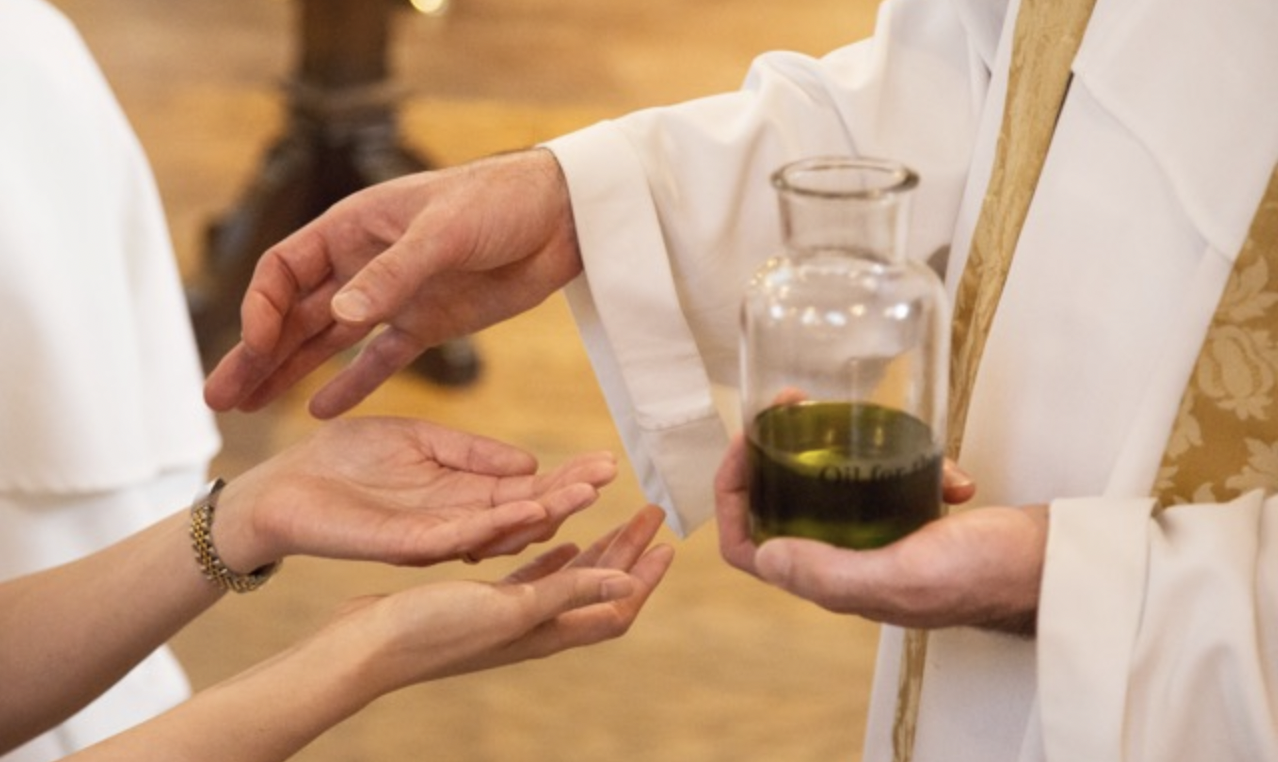The Sacrament of the Anointing of the Sick
Sacrament of the Anointing of the Sick
MONTHLY MASS & ANOINTING OF THE SICK
On the last Monday of each month at St. John's, the Sacrament of the Sick is offered following the 6:30PM Mass. It is offered each month and all are welcome to attend.
“Is anyone among you sick? They should call for the priests of the church, and he will pray over them and anoint the sick with oil in the name of the Lord, and the prayer of faith will save the sick person, and the Lord will raise them up. If they have committed any sins, they will be forgiven." — Letter of St. James 5:14-15
Suffering and illness affect us in body and spirit. If one member suffers in the Body of Christ, which is the Church, all the members suffer with that member. In times of frailty, sickness, treatment, or surgeries the parish family assures the infirmed of our care and support through our prayer, personal visits and the Sacrament of the Anointing of the Sick.
Body of Christ, which is the Church, all the members suffer with that member. In times of frailty, sickness, treatment, or surgeries the parish family assures the infirmed of our care and support through our prayer, personal visits and the Sacrament of the Anointing of the Sick.
The Sacrament of the Anointing of the Sick is for all who face a serious illness or surgery or who are impaired by old age. It is distinct from the “Last Rites,” or Viaticum, in which the Church offers Holy Communion as food for the journey to life eternal.
One may celebrate the Sacrament of the Anointing of the Sick many times if needed for strength and healing in mind, body and spirit. In this sacrament of anointing, Christ strengthens our faith and bestows God’s grace in a time of anxiety and pain.
WHEN TO ASK FOR THE SACRAMENT?
If you know you will be hospitalized for a planned surgery you should contact the parish before you enter the hospital to arrange a time celebrate the sacrament. Often the Sacrament of Anointing can be celebrated after Mass. Call the Parish Office to make an arrangement for the Sacrament.
If someone is in the hospital, simply notify the Catholic Chaplain and they will make arrangements for the Sacrament of the Sick to be offered.
EMERGENCY
If there is an emergency and need immediate assistance for the Sacrament of the Sick, call the parish number (508-222-1206) and listen to the options for contacting the priest.

